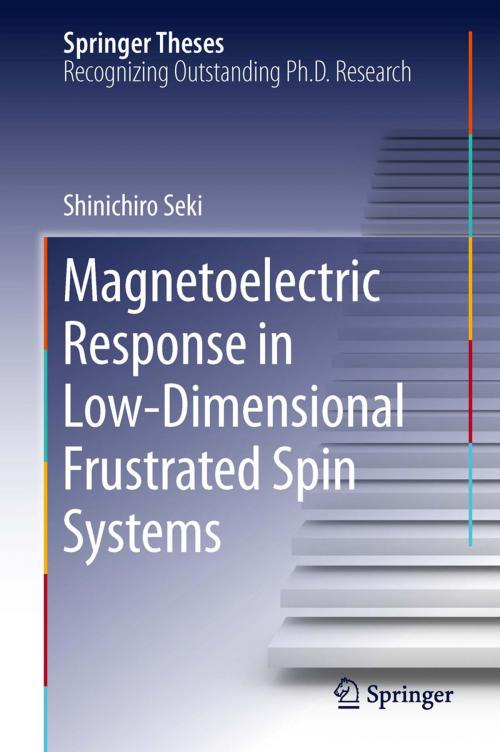Magnetoelectric Response in Low-Dimensional Frustrated Spin Systems
Nonfiction, Science & Nature, Science, Physics, Magnetism, Technology, Material Science| Author: | Shinichiro Seki | ISBN: | 9784431540915 |
| Publisher: | Springer Japan | Publication: | August 27, 2012 |
| Imprint: | Springer | Language: | English |
| Author: | Shinichiro Seki |
| ISBN: | 9784431540915 |
| Publisher: | Springer Japan |
| Publication: | August 27, 2012 |
| Imprint: | Springer |
| Language: | English |
Electric control of magnetic properties, or inversely, magnetic control of dielectric properties in solids, is called a magnetoelectric effect and has long been investigated from the point of view of both fundamental physics and potential application. Magnetic and dielectric properties usually show minimal coupling, but it recently has been discovered that magnetically induced ferroelectricity in some spiral magnets enables remarkably large and versatile magnetoelectric responses. To stabilize such helimagnetism, magnetic frustration (competition between different magnetic interactions) is considered the key. In the present work, two of the most typical frustrated spin systems—triangular lattice antiferromagnets and edge-shared chain magnets—have systematically been investigated. Despite the crystallographic simplicity of target systems, rich magnetoelectric responses are ubiquitously observed. The current results published here offer a useful guideline in the search for new materials with unique magnetoelectric functions, and also provide an important basis for a deeper understanding of magnetoelectric phenomena in more complex systems.
Electric control of magnetic properties, or inversely, magnetic control of dielectric properties in solids, is called a magnetoelectric effect and has long been investigated from the point of view of both fundamental physics and potential application. Magnetic and dielectric properties usually show minimal coupling, but it recently has been discovered that magnetically induced ferroelectricity in some spiral magnets enables remarkably large and versatile magnetoelectric responses. To stabilize such helimagnetism, magnetic frustration (competition between different magnetic interactions) is considered the key. In the present work, two of the most typical frustrated spin systems—triangular lattice antiferromagnets and edge-shared chain magnets—have systematically been investigated. Despite the crystallographic simplicity of target systems, rich magnetoelectric responses are ubiquitously observed. The current results published here offer a useful guideline in the search for new materials with unique magnetoelectric functions, and also provide an important basis for a deeper understanding of magnetoelectric phenomena in more complex systems.















